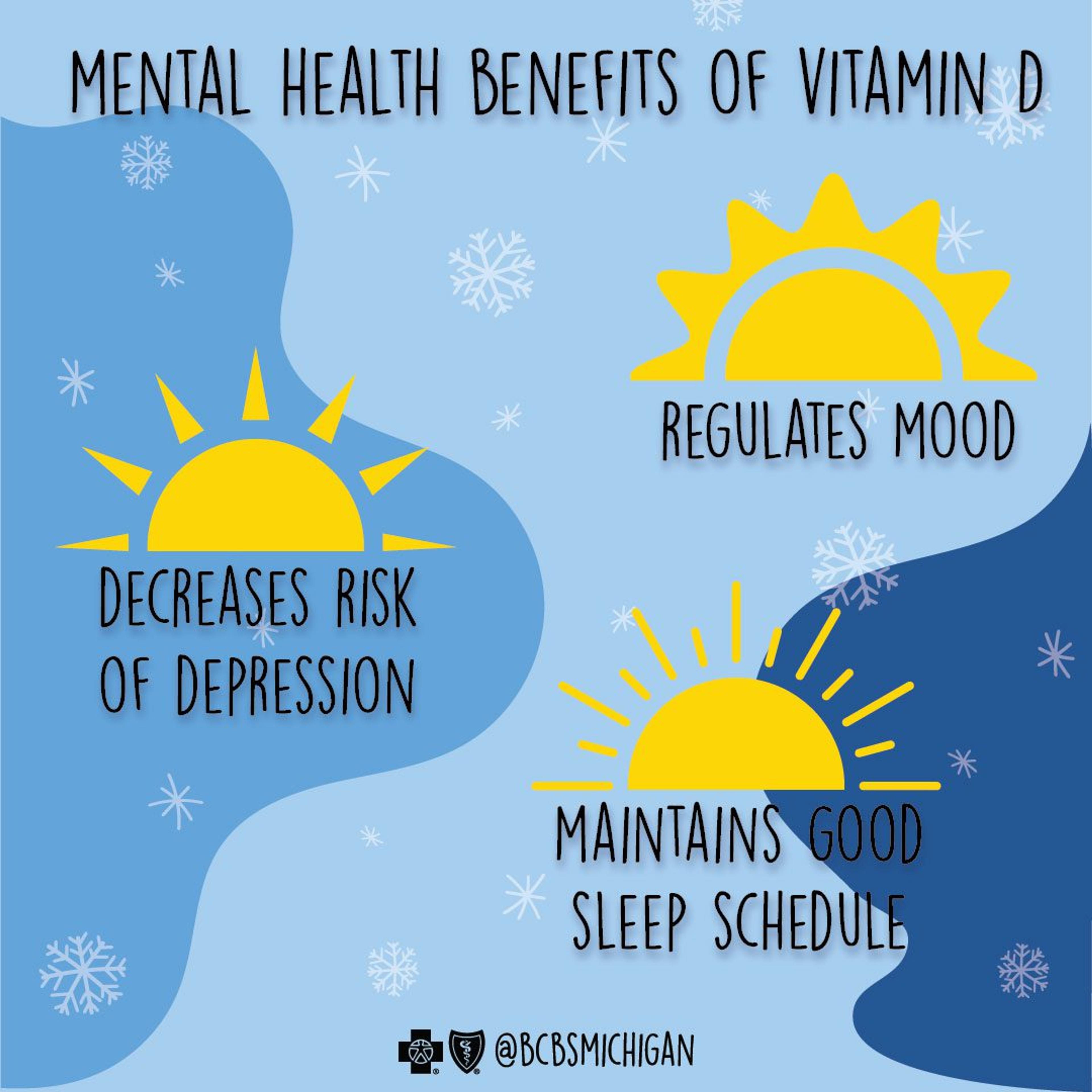Mental Health Benefits of Vitamin D

Abby Grant
| 3 min read

Vitamin D is an important vitamin that helps you stay healthy both mentally and physically. You can obtain vitamin D through dietary sources, but the best source of vitamin D is when the body produces it naturally when directly exposed to sunlight.
However, many individuals who live in the Midwest have lower levels of vitamin D in the winter months as they spend more time indoors. During a Midwestern winter the sun sets earlier and the cold, blustery weather keeps people inside. Less sun and lower levels of vitamin D can negatively impact your mood and mental health.
Vitamin D deficiencies are common during the wintertime, so it is important to know the signs as well as how to increase your vitamin D during the winter season.
Signs of a vitamin D deficiency
A vitamin D deficiency can be characterized by:
- An increased feeling of sadness or hopelessness
- Higher anxiety levels
- Fatigue
Additionally, people can have trouble sleeping or a loss of appetite which can negatively impact your mood as well. If you’re concerned that you may be deficient in vitamin D, talk to your health care provider to discuss your diet, lifestyle and mental health concerns.

Benefits of vitamin D
While vitamin D can help fight infections and help keep you physically healthy, it also can positively impact your mental health and well-being. Vitamin D plays an important role in regulating your mood, and studies have shown it is associated with a decreased risk of depression.
In addition to the internal mood regulation, increasing vitamin D levels can help to regulate your sleep schedule. Getting a good night’s sleep can help improve your mood and mental health.
Where to get vitamin D
The most common way to get vitamin D is safe exposure to sunlight, but during the winter it is harder to receive the same amount of sunlight when the daylight is shorter. One way to increase exposure to sunlight is to prioritize time outdoors even when it is cold. However, it can be difficult to be outside in the winter – and some individuals may find cold weather aggravates other health conditions.
Instead, you can get some of the same benefits of sunlight indoors by using a light therapy lamp. Light therapy lamps radiate high-intensity ultraviolet rays that can trigger vitamin D production in the body without causing skin damage.
Another way in which people can increase their vitamin D levels is through their diet.
Fatty fish like salmon, tuna and sardines are all high in vitamin D that you could implement in your diet; but, if you don’t enjoy fish, egg yolks, mushrooms, and milk, both dairy and nondairy substitutes, are also high in vitamin D. Incorporating foods that are high in vitamin D is a great way to increase your vitamin D levels during the winter season.
While vitamin D supplements are available, talk to your health care provider before starting. Supplements may interfere with medications or health conditions if not taken under the direction of a provider.
It is harder to maintain normal vitamin D levels throughout the winter but recognizing the signs of vitamin D deficiencies and knowing how to increase your vitamin D levels are the first steps to improving and regulating your mood.
Photo credit: Getty Images





